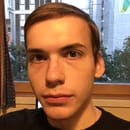Poetry. Even writing the word summons up a memory of some dreary hour in a GCSE English classroom, accessorised with expressions of every sort – that one person who is so enthusiastic about this subject that they’re enjoying even this hour (admittedly me, most of the time), the collective in the far corner who likely have looked at their phones more than the board, the couple asleep or drifting off, the totally lost filling the broad centre of the room and the teacher, exasperated and sick to death of the sight of those who don’t care. It’s a common memory, and its ilk are at the roots of why large numbers of students ditch poetry as soon as they leave the exam hall. I certainly drifted away from it and into prose, being a typical English student, yet recently I threw away my doubts about the art and sank into it. Know what? I don’t regret it at all. Here’s why:
It’s by everyone, for everyone
You think the offices at any large TV or film production company contain several examples of Caribbean culture? Is Eastern Asia well-represented in Hollywood? Are there masses upon masses of non-condescending representations of working-class Britons in film? Perhaps, but if there are they can’t be well-publicised. On the other hand, poets such as Linton Kwesi Johnson, Maya Angelou, and Bashō have been exceptionally prevalent voices for their respective cultures, and they’re merely a few names from a pool of talent that includes your typical English Shakespeares, Larkins and Wordsworths and a diversity of other poets in equal amounts. A cliché way to put it would be to say “Poetry lets you see the world through another’s eyes”, but let’s save such wistful thoughts for reading the poems.
Learn about world history from its context
It’s pretty likely you’ve heard of The Charge of the Light Brigade at some point, or perhaps even the Peterloo Massacre, however do you understand what they were? Do you have a sense of how the country (and as we approach more modern events, the world) reacted? Thanks to poets like Alfred Lord Tennyson and Percy Bysshe Shelley, you can get a glimpse into the social and historical contexts of fantastic and tragic events alike. There’s even some very intriguing poetry about good old President Trump – it perhaps lacks some of the refinement of poetry you studied in school, yet nevertheless it’s a useful (and very, very accurate) finger-on-the-pulse of our world at this time.
It invites you to read how you want to read
Sure, John Keats won’t rise from his grave and send hordes of pale warriors after you if you don’t fully buy into parts of his work. You don’t even really have to keep a poem in your mind as you go about your day and ponder it extensively (though I do recommend it, it leads to some bizarre readings and interpretations). Reading a poem is not a structured experience like your exams may lead you to believe it is; there’s never a definite answer. There can be obvious answers, of course – many would struggle to disagree that a poem called “To Autumn” is in fact about the season of autumn. However, poetry is like music (in fact, much of poetry is music) in that your experience with it is yours, and most (if not all) poetry invites you to explore it and have fun with it. Read it upside-down, backwards, in a foreign language if you can. You’ll find it’s all much more fun when there’s no exam date hanging over your head and no coursework due in tomorrow.
Yes, I’m all for poetry as an art form. No, I don’t love, or even really comprehend, every poem I read. Just like TV, film, music and people, some of it disagrees with me, some of it exhausts me and some of it is just plain odd. Is that okay? Of course! Poetry’s a sandbox, free and open for you to enjoy however you like. Do a little digging in the sand and you’ll uncover something you can really get into. If you’re willing to open yourself up and make the effort, poetry is more than happy to accommodate you. Happy reading!


